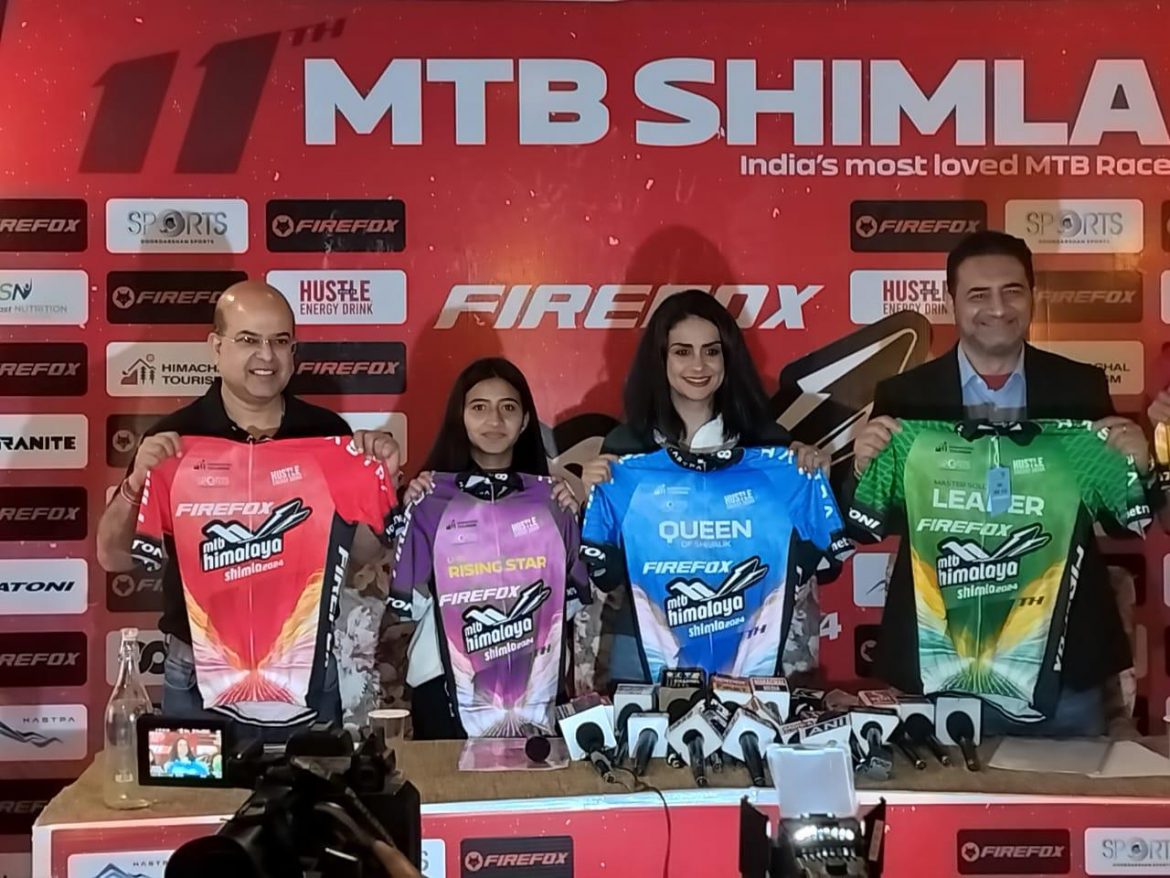Do you remember the moment you got your first bicycle? How old were you when you first felt that exhilarating sense of freedom, pedalling furiously down your street with the wind in your hair? Was it a surprise birthday gift from your parents, gleaming with promise, or a cherished hand-me-down from a sibling, bursting with stories of past adventures?
That bicycle wasn’t just a toy—it was your first taste of independence.
Now, picture that same thrilling sensation, but magnified a hundredfold, as riders from around the globe converge on the rugged, breathtaking trails of Shimla. Recently, this picturesque town hosted a mountain biking championship organised by Firefox Bikes LTD in collaboration with MTB Himalaya and the Himalayan Adventure Sports and Tourism Promotion Association (HASTPA). This event wasn’t just a test of athletic prowess; it was a celebration of inclusivity, environmental consciousness, and cultural exchange.
This year’s event stood out with its challenging new route and format, taking 140 riders from around the world on a 130 KM journey through the scenic forest trails of Kufri Wildlife Sanctuary, Chail Wildlife Sanctuary, and the pristine forests of Mashobra. Covering 3,000 vertical metres over two days, participants navigated jeep roads, single tracks, and forest climbs, pushing their limits and embracing the thrill of the great outdoors.
Let’s Recap!
In the late 1960s and early 1970s, a group of adventurous cyclists in Marin County, California, began modifying old cruiser bikes to tackle the rugged fire roads of Mount Tamalpais. These riders, including pioneers like Joe Breeze, Gary Fisher, and Charlie Kelly, participated in informal races known as “Repacks,” named after the need to repack the coaster brakes after each run due to overheating.
The development of mountain biking was marked by experimentation with bike modifications and components to improve performance on off-road terrain. Riders started using lightweight frames, wider tyres, and stronger brakes to navigate the challenging trails more efficiently.
In 1976, the first official mountain bike race, the Repack Downhill, was organised by Charlie Kelly and the MountainBikes company. This event laid the groundwork for the burgeoning mountain biking community and inspired further innovation in bike design and technology that we are witnessing in contemporary times, including the 11th edition of MTB Shimla.
A New Era of Inclusivity
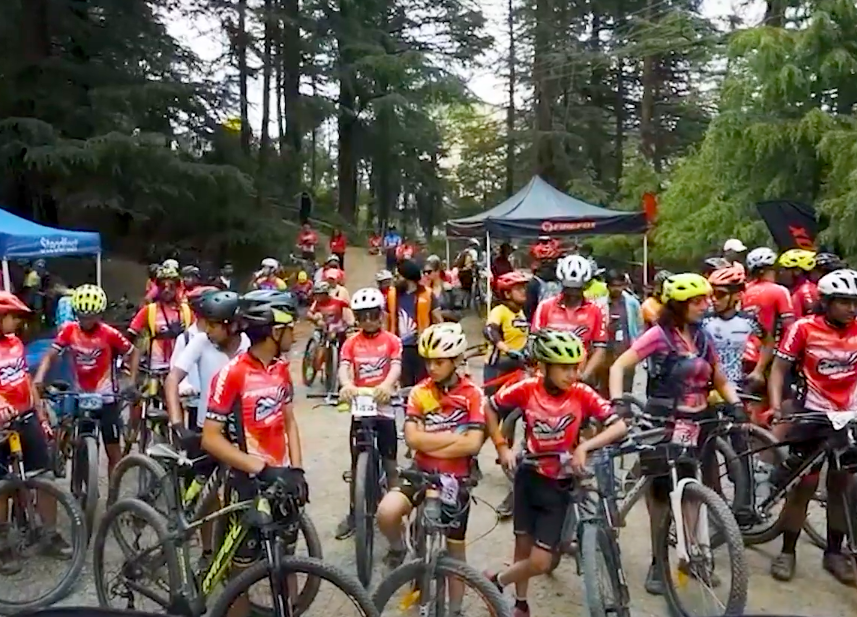
What we witnessed in Shimla was a remarkable conglomeration of bikers ready to pedal away their cultural, economic, socio-political, and gender-based markers of differentiation.
With seven categories accommodating a diverse age range from 11 to 63, MTB Shimla 2024 showcased mountain biking as a sport for all. This inclusivity was particularly evident in the record number of female participants—16 women riders—marking a significant cultural shift towards gender equality in adventure sports.
“This year’s race in Shimla embodies the surging enthusiasm for mountain biking and adventure sports sweeping across India,” expressed Mr. Sriram, CEO of Firefox Bikes LTD. “It transcends being merely a race; it mirrors a dynamic cultural shift towards embracing the great outdoors, pushing boundaries, and accepting new challenges. Witnessing riders from diverse backgrounds, spanning different ages and experiences, underscores the inclusive essence of this exhilarating sport.”
He continued,
“The presence of top-tier riders heightened the race’s atmosphere, infusing it with tangible excitement and fostering an unparalleled sense of competition. Their expertise, determination, and unwavering passion not only ignited fellow participants but also stood as a testament to the relentless pursuit of excellence within the mountain biking fraternity. Their participation highlights the event’s significance as a platform for showcasing the finest talents and pushing the boundaries of achievement in this thrilling realm of adventure sports.”
Cultural and Environmental Impact
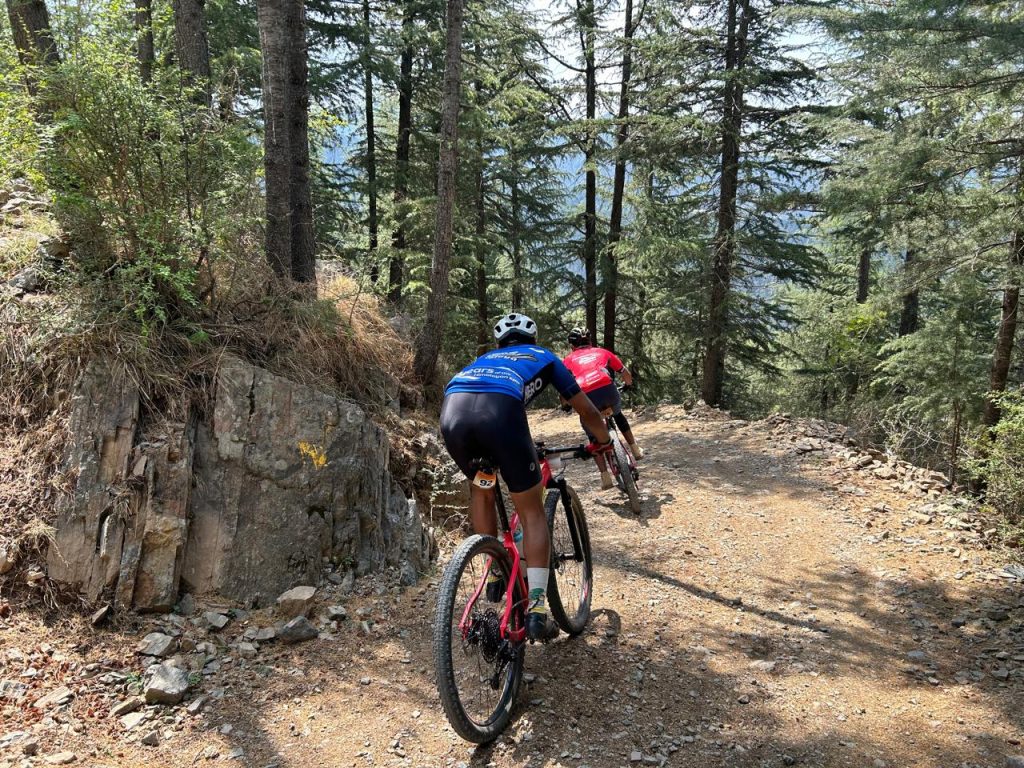
Shimla’s breathtaking landscapes provided a stunning backdrop for the event, emphasising the importance of preserving natural habitats through eco-friendly tourism. Events like this promote environmental awareness, encouraging participants and spectators alike to value and protect the natural beauty that makes such adventures possible.
The local communities in Shimla and surrounding areas reaped economic benefits from the influx of visitors, while also gaining increased visibility for their unique culture and heritage. The championship became a platform for cultural exchange, with out stationed riders and local residents sharing experiences, traditions, and a mutual admiration for the sport.
In an exclusive interview, the Marketing Lead of Firefox Bikes, Ashish Sood brought our attention to the differentiating factors between the cycling culture in India and the West. According to Sood,
“In the West, cycling is part of the culture, with a strong infrastructure and a well-developed market ecosystem. On the other hand, India is at the beginning of the cycling culture, and it is fast-growing, driven by the people’s interest in fitness and wellness.”
The Spirit of Adventure and Personal Triumph
Participants’ personal stories revealed a common thread of perseverance and an unsatiated hunger for adventure. From overcoming personal challenges to achieving new personal bests, the riders’ experiences highlighted the transformative power of adventure sports.
The new route and format of this year’s race added an extra layer of excitement and challenge, enhancing the overall experience for the riders. While the professional riders came fully equipped to respond to the challenging terrains, other participants were scanty at best in their preparations. A young army personnel, brimming with excitement to participate in the race shared, “I rented a bike only yesterday from a local shop nearby so that I can participate in the race”. When asked what motivated him to compete in the championship, he said with remarkable self-assurance, “It’s not about winning or losing, it’s about pedalling through the risky yet beautiful trails with a group of people motivated to do the same thing.”
Some participants longed to be part of a community that extended beyond the self and merged with the pristine beauty of nature, others were on a fiercely individual journey. “I don’t like to think of it as a race, I like to think of it as an expedition with just me, the mountains and nature converging into one,” said Nalini, an avid biker from New Zealand competing in the championship for the first time.
Innovations and Safety Concerns
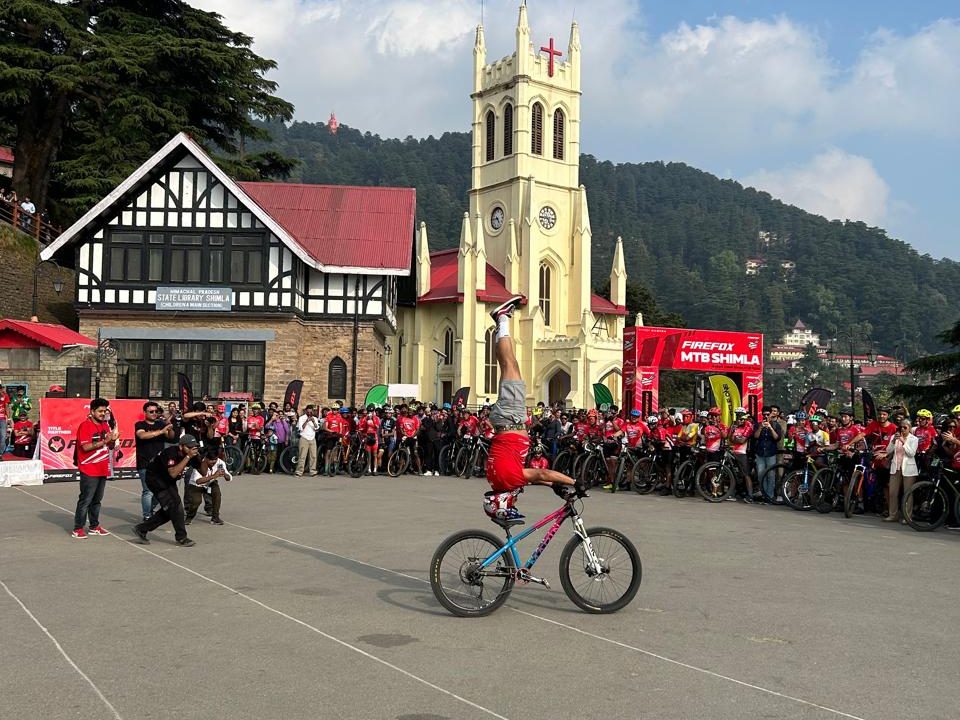
The championship also showcased the latest advancements in mountain biking gear and equipment.
Organising an event of this scale required meticulous planning and coordination. From trail preparation to safety measures, the execution of the championship demanded that no stone be left unturned. Unfortunately, the organisers were not up to the mark when it came to meeting these expectations, inadvertently compromising the safety of the riders.
The lack of attention to essential safety aspects was a glaring oversight on their part – helmets lacking proper safety standards, sparse safety gear, and the unsatisfactory condition of some bicycles led to slips and accidents that could have been easily prevented with proper guidelines and protocols in place.
The Future of Mountain Biking in India
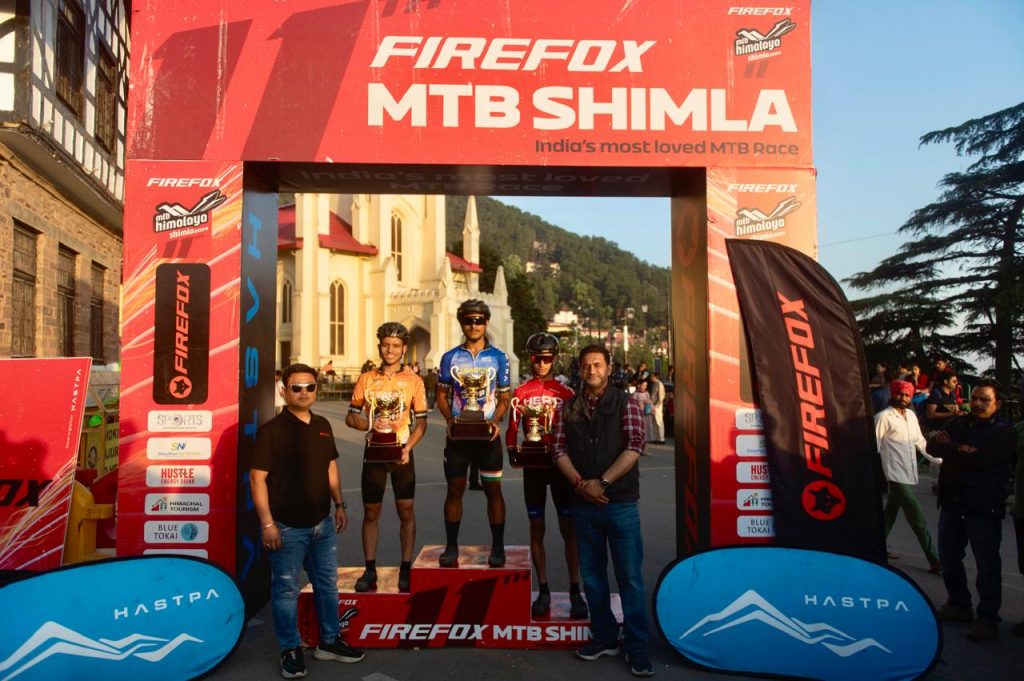
As mountain biking continues to gain popularity in India, the championship in Shimla stands as a beacon of the sport’s potential. Support from organisations like HASTPA and growing interest from both participants and spectators indicate a bright future for mountain biking in the region.
Governmental and non-governmental support will be crucial in sustaining this growth, providing the necessary infrastructure and funding to nurture young talent and promote adventure sports. The cultural shift towards embracing outdoor activities and adventure sports represents a significant trend in modern lifestyles, offering a healthy, engaging, and environmentally conscious way of living.

